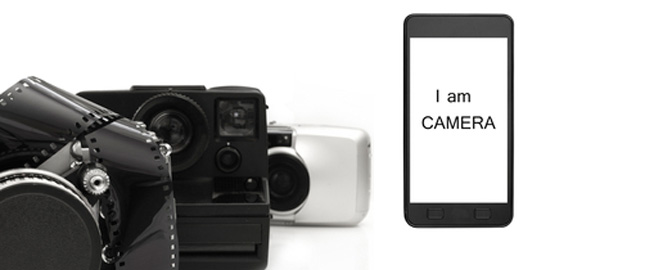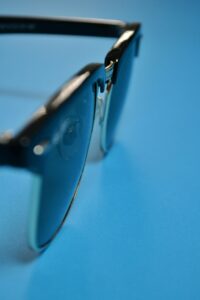From cameras to keycards, everyday devices killed off by the smartphone
(Reprinted from http://www.theguardian.com/technology/2014/aug/04/cameras-keycards-everyday-devices-killed-off-by-the-smartphone-gadgets)
The smartphone has left a long list of redundant gadgets in its wake. But what things could it never displace?
Hotel keycards are to become the latest thing to be killed off by smartphones, as the Hilton chain announces a $550m investment in replacing key cards with smartphone technology. But the list of dead and dying technologies smartphones have left in their wake is long.
The mobile phone
The legendary Nokia 3310 is a dying breed. Photograph: Lenscap/Alamy
Smartphones are the evolution of the mobile phone merged with pocket computers. The rise of the smartphone and extinction of the mobile phone is almost complete in Britain, with an 80% penetration predicted by next year.
While mobile phones are still on sale, and some are sticking to their phones that last a week or more on a single charge, the smartphone has rung the death knell and it’s only a matter of time before mobiles go the way of the dodo.
Landlines and pay phones
The pay phone, decomissioned. Photograph: Cultura RM/Alamy
Mobile certainly started the trend but the smartphone reinforced it. Pay phones are disappearing from our streets and being converted into anything from cash machines to lending libraries.
Landline use is also on the decline as smartphones become the only phone many people feel they need, even if mobile phone signal can be dodgy at best inside the home.
The point-and-shoot camera
Compact cameras replaced by smartphones. Photograph: Yuya Shino/Reuters
The moment feature phones came equipped with cameras, the days of the compact point-and-shoot camera were numbered. Smartphones really hit the nail on the head, with some far surpassing the quality of cheaper cameras.
That’s not to mention video cameras, which were less popular to begin with. The best camera is the one you carry with you, and smartphones are it.
The Walkman
The Walkman and its many iterations through Discman and digital Walkman, even Apple’s iPod, all killed by the smartphone. Photograph: REX
When was the last time you saw a Walkman or an iPod? Smartphones have become the music player too, with the last bastion of music players being small fitness-focused devices.
Now smartphones are light enough and durable enough to go out on a run, and provide data on that run, the days of even the iPod shuffle or Sansa Clip are almost done.
Dictaphones
When was the last time you dictated something into a tape recorder? Photograph: Image Source/Rex Features
The small voice recorders have been on their way out for ages, but smartphones with their sensitive voice mics and recording apps have made them redundant. The only thing most smartphones can’t do yet is record a line-in, but there are ways round that with adapters.
Cheap computers
Tablets killed netbooks, now smartphones are killing off cheap computers and replacing tablets for some duties. Photograph: Burger/Phanie/Rex Features
People are buying fewer computers, mainly secondary laptops and cheap couch-surfing machines. Tablets have certainly eaten into that market, but it is the smartphone that’s going to seal the coffin.
Teenagers especially are turning to smartphones to look up facts and figures or hit Facebook or Twitter, leaving the cheap laptops for dead.
Portable TV
Pocket TVs weren’t popular to begin with, being expensive and with poor battery life, but smartphones put the nail in the coffin in the early days of 3G mobile broadband. Photograph: Terry Johnston/flickr
They weren’t really a mass- market thing, but the smartphone definitely killed them off with live streaming TV. Those and portable media players, but tablets had a go at those too.
Pocket calculator
The pocket calculator is dying a slow death propped up by schools. Photograph: Laurence Kiely/REX FEATURES
Smartphones have basic calculators, but they also have scientific calculators that are capable of so much more than most push-button calculators. Not many people actually carried pocket calculators anyway, but schools are one of the last hideouts, as smartphones are not going to be let into exam halls anytime soon.
Watch
For many the smartphone has replaced the watch, maybe smartwatches will buck that trend? Photograph: Reg Natarajan/flickr
Smartphones tell the time. They’re always accurate – updated directly from the mobile networks – and don’t need adjusting when day light savings come into play. Quite a few people have stopped wearing a watch, simply pulling out their phone for the time.
Cheap, non-jewellery watches seem like a dying breed. And then there’s the smartwatch to kill them off for good, if electronics manufacturers can convince people they’re actually worth charging once a day.
Alarm clock
Alarm clock, your days are numbered. Photograph: KAKIMAGE/Alamy
The humble alarm clock seems to have bitten the dust. Smartphones have taken that role, playing more than simply a beep or the radio when it’s time to wake.
Now that sleep-tracking functions know when is the best time to wake you up, the days of the alarm clock are numbered – if not over already.
Sat navs
Even TomTom branched out with a smartphone app several years ago. Photograph: Richard Gardner/Rex Features
Satnavs were a thing once, but smartphones do the navigating job better in most instances. Even manufacturers like TomTom, Navigon and Garmin have realised the connected, multi-function tool is the future, releasing satellite navigation apps on smartphones.
Coupled with great, free tools like Google and Apple maps, complete with live traffic reports, traditional personal navigation devices are on the endangered list.
What’s next?
Remotes
Remotes, your days are numbered. Photograph: Andy Drysdale/Rex Features
More and more smartphones come equipped with infrared blasters that can control the TV, the stereo, the Sky box, remotes might be the next to bite the dust.
Medical equipment
Blood glucose monitors are in the sights of smartphones, but it will probably still mean pricking a finger. Photograph: Trevor Smith/Alamy
Smartphones also have medical monitors in their sights. Attachments for measuring blood glucose levels for diabetics and cholesterol for people at risk of heart disease are coming or already here in some instances, replacing often bulky or painful tools.
Portable gaming machines
The PS Vita might be Sony’s last portable gaming console, as smartphones take over. Photograph: Kevork Djansezian/Getty Images
The days of portable gaming consoles seem numbered, as smartphones and tablets become more powerful. The last holdout for the Game Boy and its ilk seems to be physical controls – joysticks, buttons and d-pads are simply better than touchscreen controls for quite a few games.
Sony’s PS Vita has bucked the trend recently, mainly thanks to its link-up to the PlayStation 4, but it’s not hard to see it being the last of Sony’s portable gaming machines and the Game Boy could end with the 2DS.
Wallets
Who needs cash and a wallet when a smartphone can do it all? Photograph: OJO Images Ltd/Alamy
Digital wallets have been promised for some time, but haven’t really taken off yet. Smartphones could be the one device for all payments, loyalty cards and tickets.
Most banks already have mobile apps, some allow users to pay other users as well as some stores.
From September some smartphones can be used to pay for London transport on buses, tubes and rail, and London isn’t alone in this. Other cities have already embraced or are embracing smartphones as the logical extension of contactless cards.
Taxi meters
Apps like Uber could replace the taxi meter, and the traditional taxi service. Photograph: Peter Macdiarmid/Getty Images
Uber’s disruption of the taxi market has been widely documented, and it all hinges on smartphones being used as the method for monitoring journeys, replacing bespoke taxi meters. It might be a while before all taxi meters are replaced with smartphones, but Uber and other services are already pushing at that gate.
What else could be killed off by the smartphone? What about those things that could never be displaced? What will survive the rise and rise of the smartphone?



